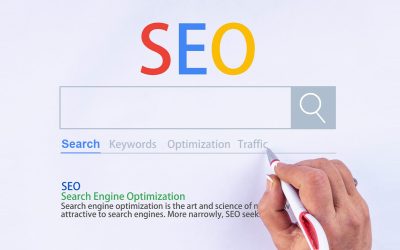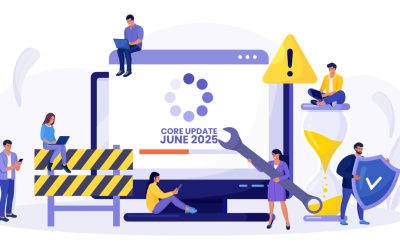In today’s digital landscape, it is crucial to optimize your content for AI search engines. AI search engines have completely revolutionized the generation and ranking of search results through advanced algorithms and machine learning. These algorithms consider various factors such as user intent, relevance, and content quality to provide accurate and valuable search results.
To align your website and online presence with these sophisticated algorithms, it is important to optimize your content specifically for AI search engines. This involves conducting thorough keyword research, organizing your content effectively, and creating engaging headlines and meta descriptions. By catering to the preferences of AI search engines, you can enhance the visibility and discoverability of your content, increase organic website traffic, and ultimately achieve online success. To stay competitive in the ever-changing digital landscape, businesses can partner with a company offering organic SEO services and embrace content optimization for AI search engines.
How does AI Impact SEO?
SEO for AI enhances your existing digital marketing strategy by identifying opportunities, such as related keywords, to improve your overall approach. With its algorithms and speed, AI enables businesses to expedite keyword research, competition analysis, search intent research, and other tasks while enhancing accuracy. By leveraging AI, businesses can enhance the precision, effectiveness, and performance of their SEO tactics and optimize content accordingly. It is important to note that AI serves as a supporting tool rather than a replacement for SEO professionals. While some may have concerns about AI taking over their roles, it actually plays a complementary function in the SEO process.
Tips to Optimize Content for AI Search Engines
- Increased page speed: Page speed is a crucial factor that influences the ranking of your website. Slow loading speeds can lead to higher visitor bounce rates and shorter dwell times, which in turn can negatively impact your position on the AI search engine results page (SERP). To improve page speed, you can implement caching techniques, reduce image sizes, and optimize your code. By taking these steps, you can enhance the loading time of your website and potentially improve your ranking on the AI search engine results page (SERP).
- Utilize structured data: Search engines can learn more about the content on your website thanks to structured data. You can help AI search engines better comprehend the context of your content and increase its relevancy by leveraging structured data. Implementing structured data on your website can allow it to appear as a rich snippet in search results.
- Analyze the search intent: Search intent refers to the objective behind a user’s search query. Understanding search intent is crucial for creating relevant and valuable content that ranks well on AI search engine results pages (SERPs). It is important to identify whether the search intent is navigational (seeking a specific website or resource), informational (looking for information or answers), commercial (seeking products or services), or transactional (aiming to make a purchase or take a specific action). By determining the primary intent, you can tailor your content to match the needs of your target audience. After identifying the optimal format for your content, focus on addressing the specific objective of your target audience. This will help you create content that not only aligns with search intent but also provides value and relevance to users, increasing the likelihood of ranking higher on AI SERPs and attracting quality organic traffic.
- Create unique and worthwhile material: Any AI SEO plan must start with content. Your content needs to be unique, worthwhile, and pertinent in order to rank well in search results. Make content that satisfies your target audience’s needs and addresses their concerns. The layout must be simple to read, orderly, and visually appealing.
- Improve for voice searches: A growing number of people are using voice search, especially as smart speakers and virtual assistants become more prevalent. Create content that responds to frequently requested questions, utilize natural language, and localize your website to make it voice search-friendly.
- Share what you eat: EAT is a ranking criterion that evaluates your website’s knowledge, stature, and dependability. Make sure your website has a secure HTTPS connection, produce high-quality content, and link to reliable sources to increase your EAT.
- Make multimedia material available: The engagement and stay time on your website can be improved by using multimedia material, such as movies, photos, and infographics. This can raise your search engine ranking. Make sure your multimedia content is of the highest caliber, pertinent, and search engine optimized.
- Participate in social media: Social media provides a platform for expanding your company’s reach and connecting with a broader audience. By sharing user-generated content (UGC), actively engaging with comments, and participating in discussions, you can foster meaningful interactions with your audience on social media. These interactions not only help raise awareness of your brand but also create opportunities to build relationships and strengthen connections with your target audience.
- Make mobile compatibility a priority: More than 60% of all internet traffic is currently generated by mobile devices (source: Exploding Topics). To ensure a great user experience, it is essential to optimize your website for mobile devices. “Mobile-first” is the new catchphrase; “mobile-friendly” is no longer sufficient. Consider responsive design, and optimize images and page load time.
- Create semantic SEO-friendly content: Semantic search relies on natural language processing (NLP) to understand the context of search queries. To optimize your content for semantic search, it is important to incorporate relevant keywords and phrases. Organize your content in a manner that promptly and concisely addresses user queries while providing the necessary context. By implementing these strategies, you can enhance your content’s visibility and relevance in the context-driven world of semantic search.
Read more about AI Content Marketing
Don’t let your valuable content go unnoticed, act now and seize the opportunity to optimize, and thrive!
To start your content optimization journey today call us at (800) 941-5527!
In the digital sphere, optimizing your content for AI search engines is crucial for success. You can better position yourself for more visibility and better ranks by thoroughly researching your keywords, knowing how AI algorithms judge relevance and value, and successfully organizing your material.
By using organic SEO services, you can make sure that your website and online presence comply with AI search engine standards, which will increase organic traffic, improve user experience, and raise your online success. The adoption of content optimization for AI search engines with the help of organic SEO services is a wise investment for businesses to survive and prosper in today’s constantly changing digital landscape.




